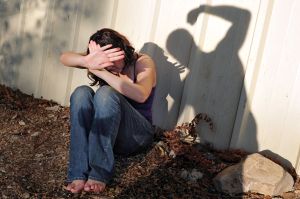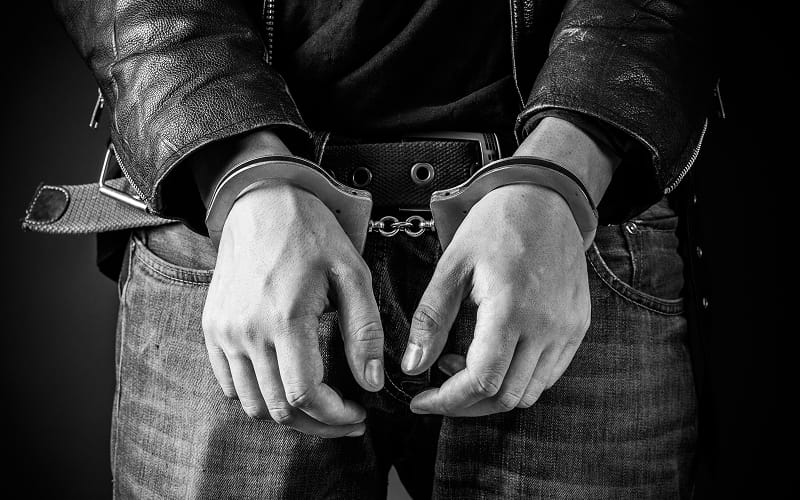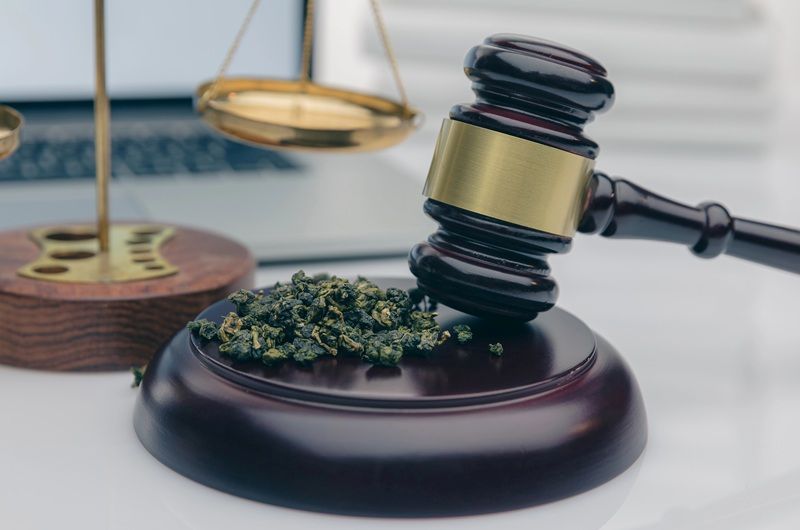Protective orders are court-issued directives that limit individual interactions when allegations of harm or threats arise. These orders are often associated with domestic assault cases, where courts aim to prevent further incidents by restricting contact. However, they can also impose severe limitations on the accused.
Legal restrictions from these orders can affect housing, employment, and personal relationships. In this article, learn about different types of protective orders in Fairfax County, Virginia, how they impact those accused, and the consequences of violations. See how legal representation can help individuals respond effectively and protect their rights.
What Do Protective Orders Do In Fairfax County?
A court issues a protective order to restrict contact between two individuals when one alleges abuse, threats, or violence. These orders often apply to domestic assault cases and aim to prevent further interactions between the parties involved.
Virginia law recognizes the importance of protecting family members and household relationships, particularly in cases involving domestic assault. In Fairfax County, an individual may request a protective order under this crime if they claim to have been harmed or threatened by:
- Spouse or ex-spouse.
- Current or former cohabitant within the past year.
- Parent, sibling, child, grandparent, or grandchild.
- In-laws if residing in the same household.
- Co-parent of a shared child.
Protective orders can be granted quickly under certain circumstances, sometimes based only on the statement of the person requesting security. While some orders last only a few days, others can remain in effect for an extended period, significantly impacting the accused.
How Do Courts Restrict Contact In Domestic Disputes?
Fairfax County courts issue three orders to limit contact in domestic cases. Each serves a specific purpose based on the situation and level of alleged risk. The duration of these orders varies, ranging from temporary restrictions to long-term legal measures.
Emergency Protective Orders
An Emergency Protective Order (EPO) provides immediate restrictions after an alleged domestic violence incident. Law enforcement often requests these orders when they believe someone is at risk of harm. A magistrate issues the order, and it takes effect right away. These orders remain in effect for 72 hours or until the court schedules a hearing.
Preliminary Protective Orders
Preliminary Protective Orders (PPOs) extend restrictions beyond the short-term EPO. The petitioner must file a request with the court, and a judge reviews the case to determine if ongoing limits are necessary. The accused can appear at the hearing and respond to the allegations. The PPO can last up to 15 days or until a hearing for a Permanent Protective Order.
Permanent Protective Orders
A Permanent Protective Order is issued only after a full court hearing where both parties present their arguments. The judge reviews the evidence before deciding if long-term restrictions are needed. Unlike temporary orders, this can last up to two years, with extensions if necessary.
These orders may prohibit contact, restrict access to specific locations, and prevent firearm possession. Violating a Permanent Protective Order can lead to severe legal penalties, including jail time. Seeking legal representation at this stage is vital to challenging, modifying, or negotiating the order’s terms.
How Can These Orders Impact Your Daily Life?
A protective order can impact various aspects of life, including legal status, employment, and family relationships. Understanding these effects is critical for anyone facing such restrictions.
Legal Consequences
A court-issued order can severely limit an individual’s freedom and interactions. It often prohibits contact with the petitioner, including phone calls, messages, or social media. Many orders also restrict the accused from entering specific locations. Some cases result in firearm restrictions or other conditions based on the situation.
Violating these conditions can lead to fines, probation, or jail time. Courts enforce these orders strictly, even if the petitioner initiates contact. A violation may also affect ongoing legal matters, such as family court or criminal charges. Understanding the terms is critical to avoid further legal trouble.
Personal & Professional Impact
The restrictions can affect daily life, forcing the accused to leave their home if they live with the petitioner. These orders can interfere with child custody and visitation in family law cases. Losing access to a shared house or children can create emotional and financial stress.
Employment can also be affected, especially if the order appears on background checks. Certain professions may restrict or terminate employees facing legal orders. Seeking legal guidance can help individuals explore options for modifying or contesting these restrictions.
What Happens If You Violate These Provisions?
Violating a court-issued order is a serious offense in Fairfax County and can have significant legal consequences. A first-time violation may result in misdemeanor charges, carrying penalties such as fines, probation, or jail time. More severe cases, especially those involving repeated violations or additional threats, can escalate to felony charges.
Beyond criminal penalties, a violation can also impact family law matters, particularly child custody disputes. Courts may view noncompliance as a sign of disregard for legal authority, potentially limiting parental rights or visitation. Additionally, a violation may lead to stricter restrictions, making it even harder for the accused to regain normalcy.
A protective order violation can also have long-term consequences, including a permanent criminal record. This record can affect job opportunities, housing applications, and other background checks, making it difficult to move forward. Given the many concerns surrounding these orders, it’s normal to have lingering questions about their effects.
What Do People Often Ask About Protective Orders?
Court-imposed restrictions often create confusion, especially for those dealing with them for the first time. Many want to know how these orders affect their rights, daily lives, and future legal matters. Below are answers to some of the most common questions about these legal restrictions.
Can Both Parties Agree To Remove A Legal Order?
The petitioner can request to dismiss the order, but only a judge can decide whether to lift the restrictions. Even if both parties agree, courts review the circumstances before deciding. Judges may deny the request if they believe the order still serves a necessary purpose.
How Can I Respond To False Claims Of Violating An Order?
False accusations can lead to serious legal consequences, even without clear evidence. If accused, document all interactions, gather supporting evidence, and avoid further contact with the petitioner. Immediately contacting an attorney can help protect your rights and prevent further legal trouble.
How Does A Legal Order Affect My Ability To Own Firearms?
Courts often impose firearm restrictions as part of these orders, preventing you from owning, purchasing, or carrying a gun. Law enforcement may require you to surrender any firearms you currently possess. Violating these restrictions can lead to serious legal consequences, including criminal charges.
Will A Legal Order Stay On My Record Permanently?
A court-issued order is not a criminal conviction, but it does appear in background checks and can limit future opportunities. When tied to a domestic assault charge, the sentence creates a permanent criminal record. Employers, landlords, and licensing boards may review this information when making decisions about your future.
Can A Court-Imposed Order Affect My Immigration Status?
Legal restrictions or related criminal charges may impact a person’s immigration case. Immigration officials consider these orders when reviewing applications for visas, green cards, or citizenship. Speaking with an attorney familiar with criminal and immigration law can help address these concerns.
Understanding these legal restrictions helps individuals avoid unnecessary risks and legal trouble. Legal guidance is critical whether seeking to remove an order, fight false allegations, or address immigration concerns. A defense attorney can provide the support needed to handle these challenges and protect your rights.
How Fairfax County Criminal Attorneys Support Your Defense?
Facing a legal order related to domestic assault can turn your life upside down. You may have to leave your home, lose access to your children, or follow restrictions that disrupt your daily life. Fairfax County Criminal Attorneys is here to guide you through this difficult time, helping you understand your options and fight for a fair outcome.
Every case has unique circumstances, and we take the time to assess yours carefully. Protective orders can have serious consequences, and quick action can make a difference. We work to minimize the impact on your life while protecting your rights in court.
Domestic assault cases are highly emotional and often involve complicated personal relationships. False or exaggerated claims can lead to legal restrictions that don’t reflect the truth. We gather evidence, present strong arguments, and ensure the court considers all facts before deciding.
You don’t have to face this alone. Our attorneys are here to provide legal support and guidance every step of the way. If you need help responding to a protective order, defending against domestic assault charges, or safeguarding your rights in court, Fairfax County Criminal Attorneys is ready to stand by you.
Court-imposed restrictions in domestic assault cases can create serious legal and personal challenges for the accused. These orders limit contact, restrict movement, and may affect housing, employment, and child custody. Violating the terms can lead to criminal charges, fines, or jail time.
Legal options exist for challenging, modifying, or defending against these restrictions. Quickly addressing the situation can help prevent further complications and protect future opportunities. Fairfax County Criminal Attorneys provides legal representation for individuals facing these court orders in Fairfax County.






